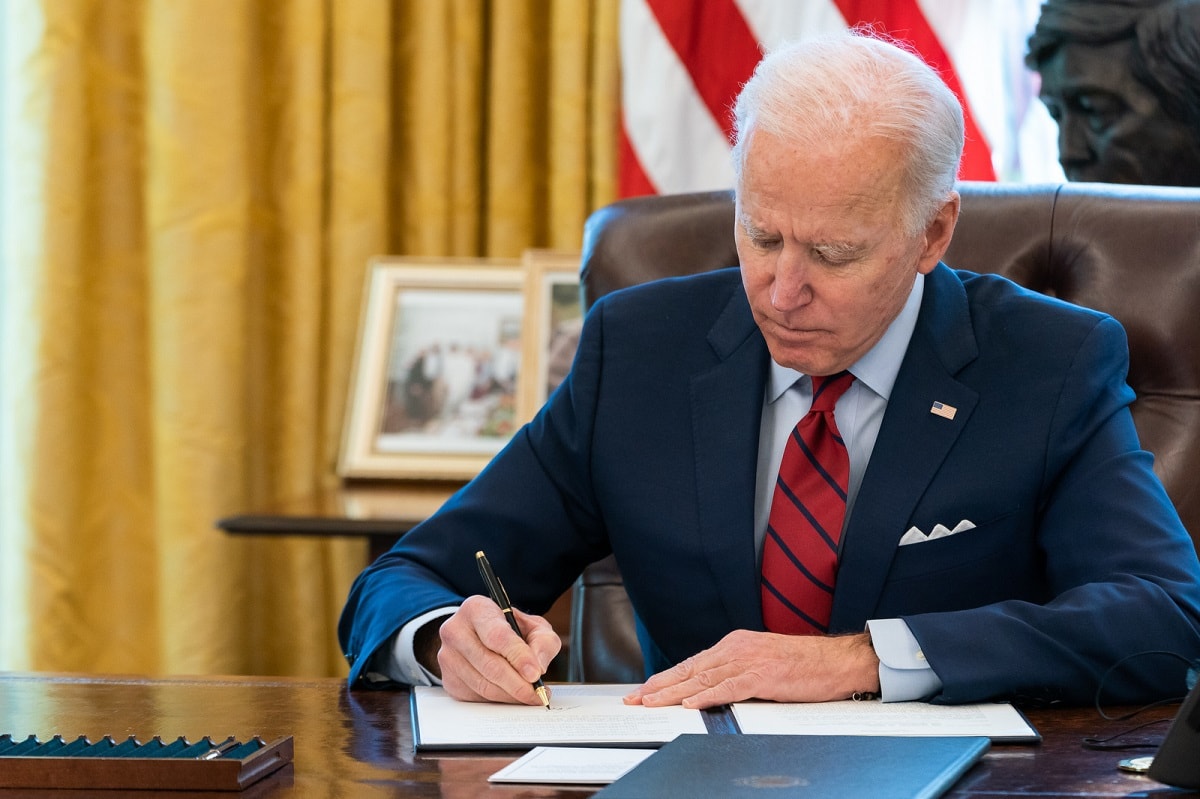On August 9, President Joe Biden signed an Executive Order imposing new sanctions on Belarusian President Alyaksandr Lukashenka and his regime “for their ongoing assault against the democratic aspirations and human rights of the Belarusian people, transnational repression and abuse, affronts to international norms, and corruption.”
The Fact Sheet accompanying the Executive Order noted that the sanctions package is the largest “to date” against Belarusian individuals and entities—a clear signal that more could come unless Lukashenka and his henchmen cease their repressive actions.
Since the fraudulent Belarusian elections last year, Lukashenka has cracked down harshly on the opposition. Belarusian police have detained more than 32,000 people and beaten thousands on the streets and in confinement, allegedly with torture in many cases. And the U.S. is rightly holding them accountable.
In total, the U.S. Treasury added 23 individuals and 21 entities to its Specially Designated Nationals and Blocked Persons (SDN) List. These individuals and companies support or are affiliated with the Lukashenka regime. The sanctions package also addresses companies that operate in key sectors of the Belarusian economy, such as tobacco products, construction, and energy.
One prominent company added to the SDN List is Belaruskali OAO, one of the largest potash fertilizer producers in the world. According to Bloomberg, it controls approximately one-fifth of the global potash market. Belaruskali is owned by the Belarusian state, making it a major source of wealth for the Lukashenka regime. These sanctions hit the regime in its pocketbook.
But perhaps the most notable sanctions in this package are those placed on the National Olympic Committee of the Republic of Belarus (Belarusian NOC), as well as five individuals connected to the Ryanair incident.
According to a U.S. Treasury press release, the Belarusian NOC “was led by Lukashenka himself” until this past February, and since then, has been led by his oldest son, Viktar Lukashenka.
This fact alone reveals the corruption of the Belarusian NOC, given the vastly corrupt nature of President Lukashenka, who has been dubbed “the last dictator of Europe.”
The Belarusian NOC is a significant entity because earlier this month, Belarusian sprinter Krystsina Tsimanouskaya was nearly forced by Belarusian Olympic officials to return home from the Olympics for daring to criticize her coaches on social media. After refusing to return to Belarus, she was granted asylum in Poland.
Following the alarming incident, the International Olympic Committee stripped the coaches of their accreditations and evicted them from the Olympic Village. And now the United States is sanctioning the National Olympic Committee of Belarus as retribution.
The sanctions placed on the five individuals in connection with the Ryanair incident also carry considerable weight. When Belarusian authorities downed a plane flying through Belarusian airspace so that they could arrest an opposition leader and his girlfriend, the United States and European Union accused Belarus of committing an act of state terrorism. The sanctions put teeth into those denunciations.
According to the Treasury Department, the five individuals sanctioned are Belarus’ Minister of Transport and Communications, the head of the aviation department within the Transport and Communications Ministry, the director of Belarus’ air traffic control entity, the director of the state-owed Minsk National Airport (where Ryanair flight 4978 landed), and a Belarusian member of parliament who defended the forced landing.
To hold the Belarusian government accountable for its act of terrorism, it is critical that the U.S. imposed sanctions on these individuals. It’s also important to note that London and Ottawa coordinated with Washington on the sanctions. Working with allies only makes the U.S. stronger.
When the Ryanair incident occurred this May, the White House promised to hold the Lukashenka regime “accountable for its abuses.” It is reassuring to see that the promise was kept and implemented on the one-year anniversary of Lukashenka’s bogus election. The Executive Order and sanctions send a strong signal that the United States stands for the Belarusian people and against Lukashenka’s illegitimate and repressive regime.
Alexis Mrachek is a research associate specializing in Russian and Eurasian affairs at The Heritage Foundation’s Allison Center for Foreign Policy.

